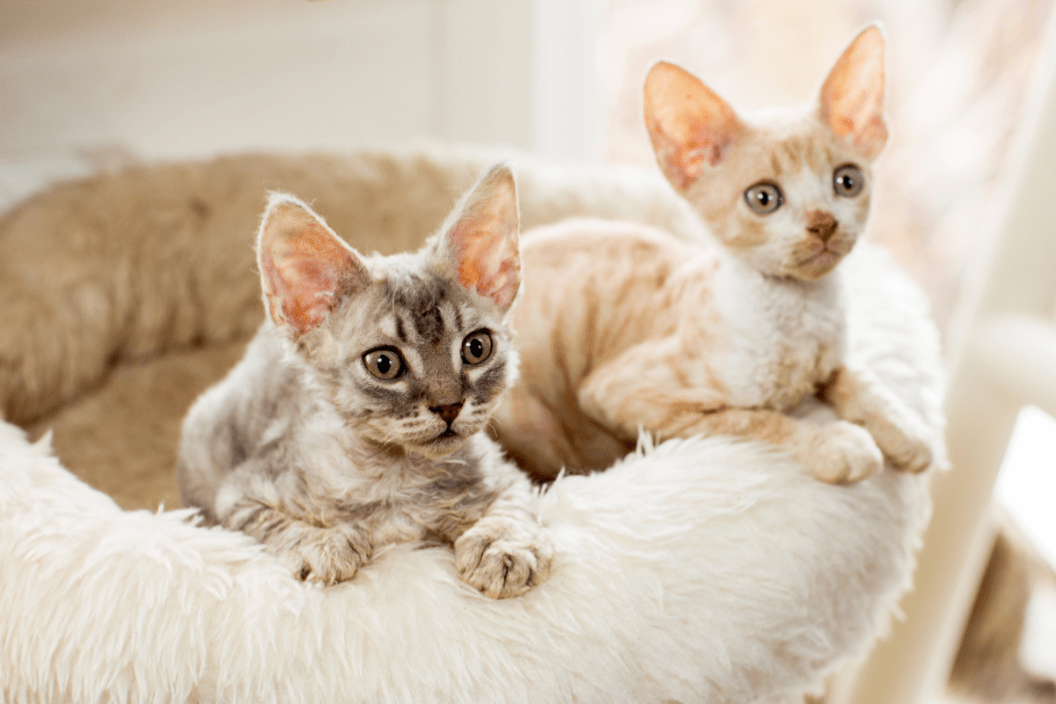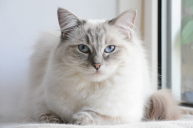While there's no such thing as a truly "hypoallergenic" cat, choosing certain breeds and making a few lifestyle tweaks can help reduce allergies. If you or a loved one is allergic to cats, you're likely very familiar with the symptoms of itchy eyes, runny noses, and difficulty breathing. But you may also love cats and wish that you didn't have an allergic reaction every time you're around them. Well, there's good news for those who want to own a cat but don't want to live with severe allergy symptoms.
Dr. Elizabeth A. Layne, a board-certified veterinary dermatologist at BluePearl Veterinary Specialists, explains that people who are allergic to cats produce antibodies against a specific molecule found in cat saliva and skin oil glands. While every breed of cat produces this molecule in their saliva and it's spread over their fur and skin when they groom (and then is shed into the environment), some individual cats can produce less of the molecule than others. Layne says that in the veterinary world, it's generally accepted that there's little to no relationship between fewer allergens and a cat's coat type or body size—but there are some seemingly hypoallergenic cat breeds that some people believe can be easier on allergies than others.
Beyond the breed you choose, it's also important to make certain lifestyle changes that may allow you to live with a cat with few allergy symptoms. Layne recommends seeing an allergist about receiving immunotherapy for a cat allergy, which could greatly decrease your reactivity. If possible, bathe your cat twice a week to remove the allergen from their skin and coat and reduce the allergen load in the household air. Additionally, Layne shares that Purina has a new diet that binds the allergy-causing molecule in cat saliva, which can reduce its prevalence on hair and skin cells.
"There's a lot of work being done to make cats hypoallergenic or to make a truly hypoallergenic cat," Layne says. "This cat is not yet available commercially, but there might be options in the future."
Layne emphasizes that these lifestyle changes surpass whichever breed you may pick, and cautions against spending thousands of dollars on a "hypoallergenic" cat. Plan to make those changes—but if you still think you can improve your odds knowing that the breed may or may not matter to your allergies, here are some supposedly hypoallergenic cat breeds you can consider.
Balinese
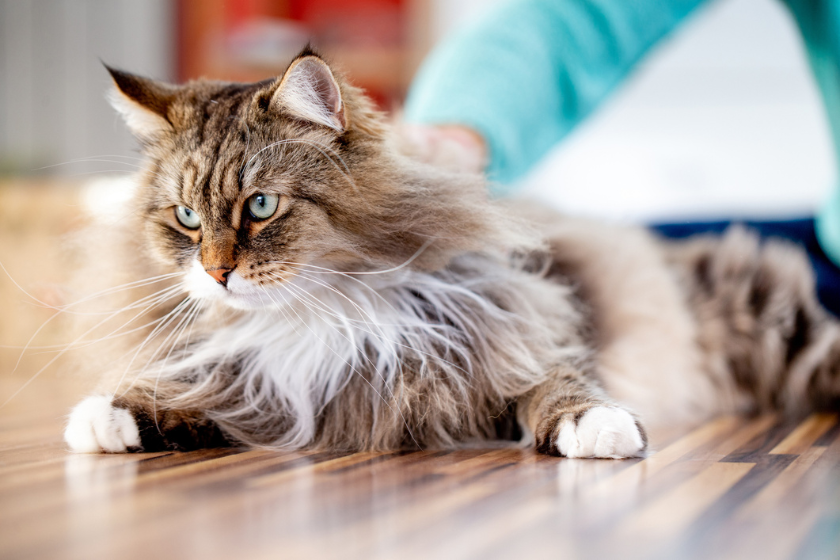
Since Balinese cats are related to Siamese cats, who are more than happy to let their opinions be known, they are very vocal as well, but this is part of their charm. Slender and small at no more than 12 pounds, people believe that they have less of the allergy-causing molecule in their saliva, and even though they're long-haired cats, they don't shed a lot.
Siberian
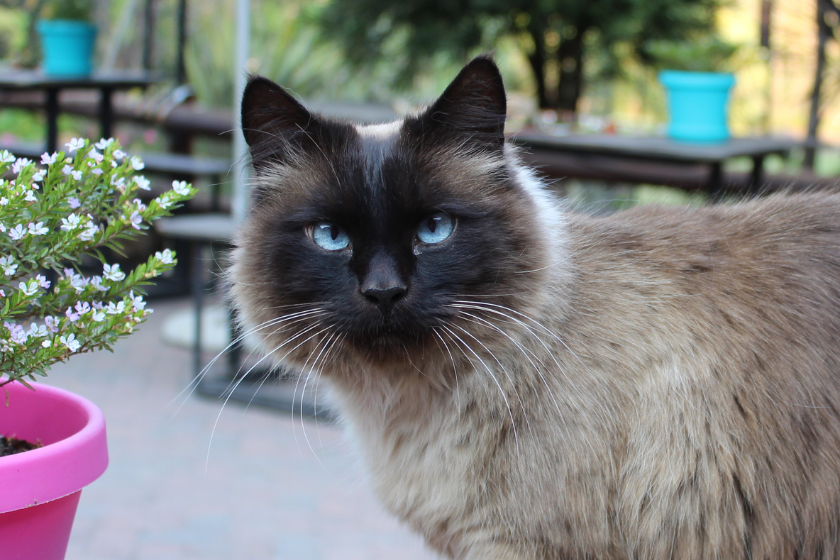
Calm, friendly, and affectionate, Siberian cats often make great family pets. They tend to get a little bigger than typical cats at 15 to 20 pounds, and can have lower levels of allergens in their saliva.
Oriental Shorthair
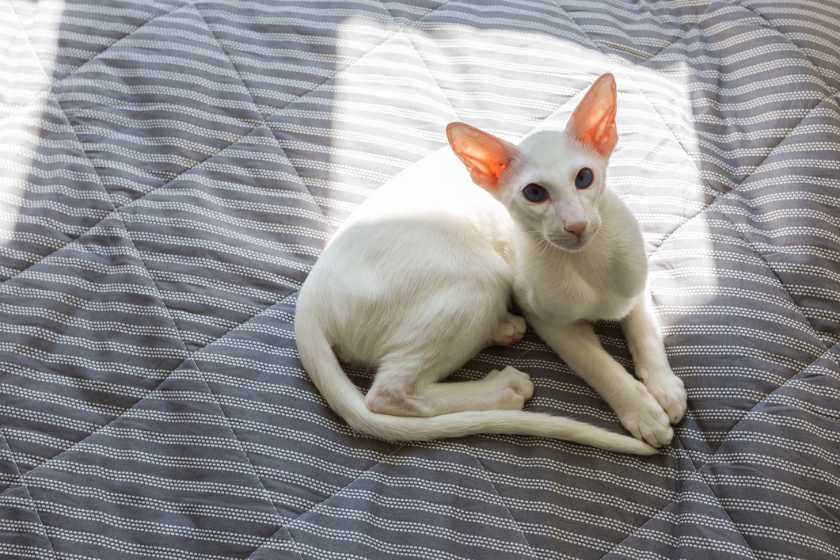
With their short, smooth coats, Oriental shorthair cats shed very little, which may result in fewer allergens throughout your home. Vocal, social, and attention-loving, they're fairly small at 8 to 12 pounds.
Devon Rex
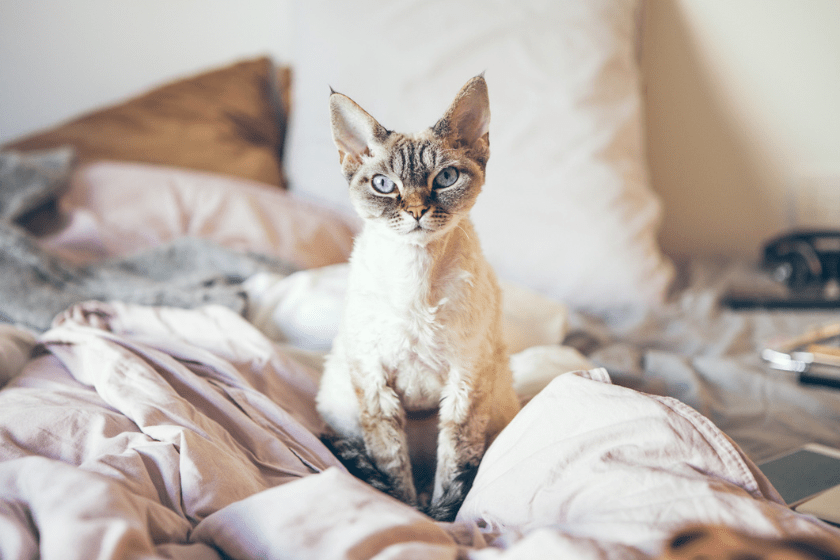
Displaying distinctive eyes and a tiny frame of only 6 to 9 pounds, Devon Rex cats are known for being fun and playful additions to a family. These cats also have tight, curly, thin coats, resulting in potentially less shedding.
Cornish Rex
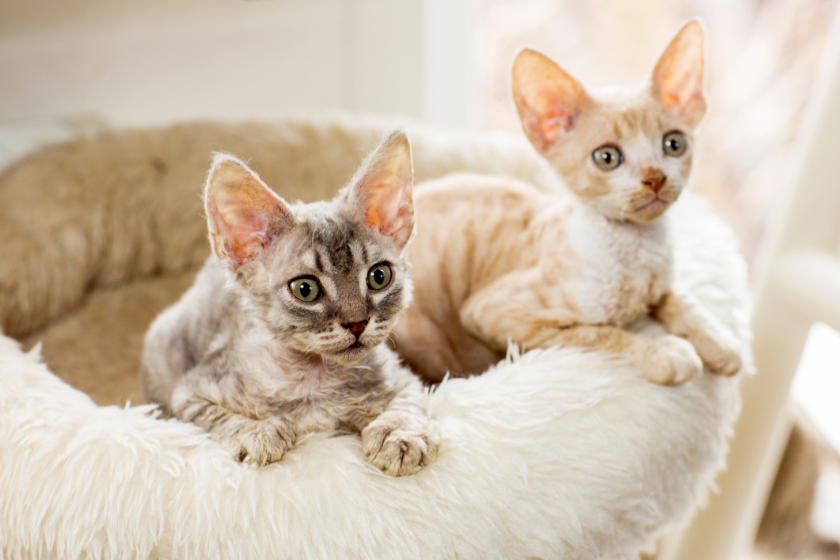
The smooth fur of the Cornish Rex cat may mean less shedding in your home. They enjoy running and jumping (a.k.a. they're non-stop entertainment), and usually weigh around six to 10 pounds.
Sphynx
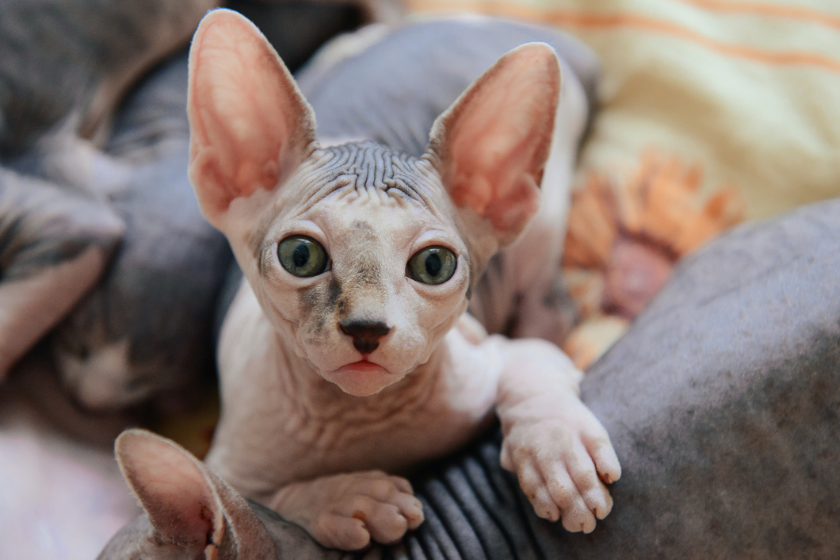
Looking like the cats that the Egyptian pharaohs once had, Sphynx cats are famous for their near-naked appearance, which could mean that they won't shed that pesky allergy-causing molecule around the house. At 6 to 12 pounds, despite their less-than-warm-and-fuzzy appearance, they're actually quite loving and friendly.
Burmese

Social and even called "dog-like," the Burmese cat may be a good fit for families who have only previously had dogs. They're about 8 to 12 pounds and are thought to be one of the lowest-shedding cat breeds.
Ocicat
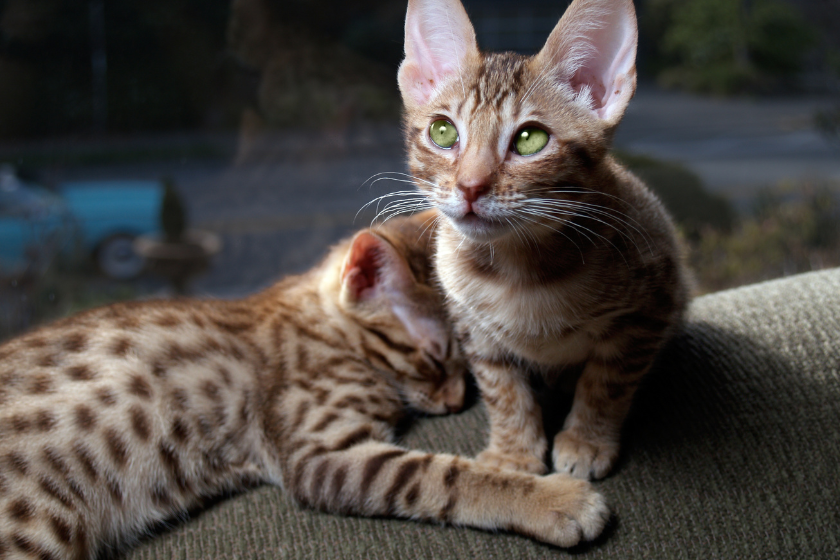
Sporting short hair and a low incidence of shedding, the Ocicat can weigh 6 pounds at their smallest or be 15 pounds at their largest. They're extremely friendly, and may even sit on strangers' laps.
Russian Blue

Sweet and incredibly loyal, pretty Russian blue cats can weigh anywhere from 7 to 15 pounds and some believe they produce less of the molecule that can bring on allergies.
Bengal
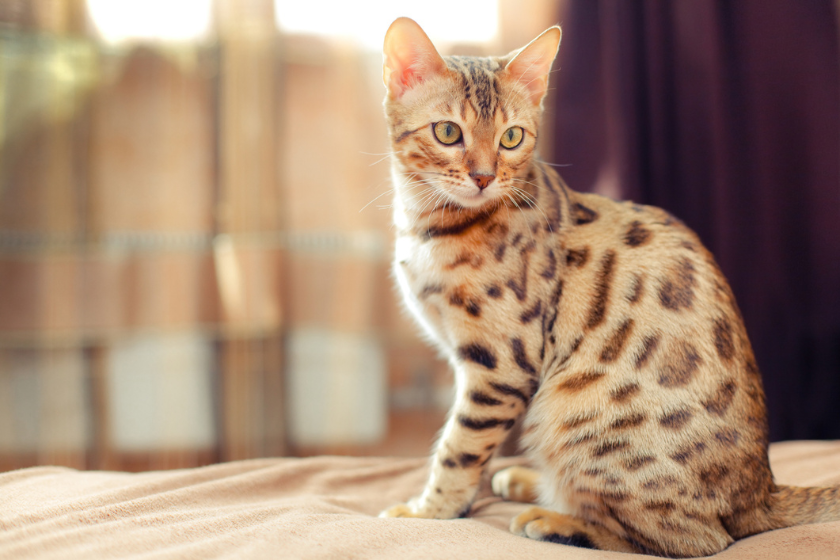
Shedding minimally and grooming frequently, Bengal cats, with their eye-catching spots that are reminiscent of a jungle cat's, are curious and friendly. They can weigh between 8 to 15 pounds.
Colorpoint Shorthair
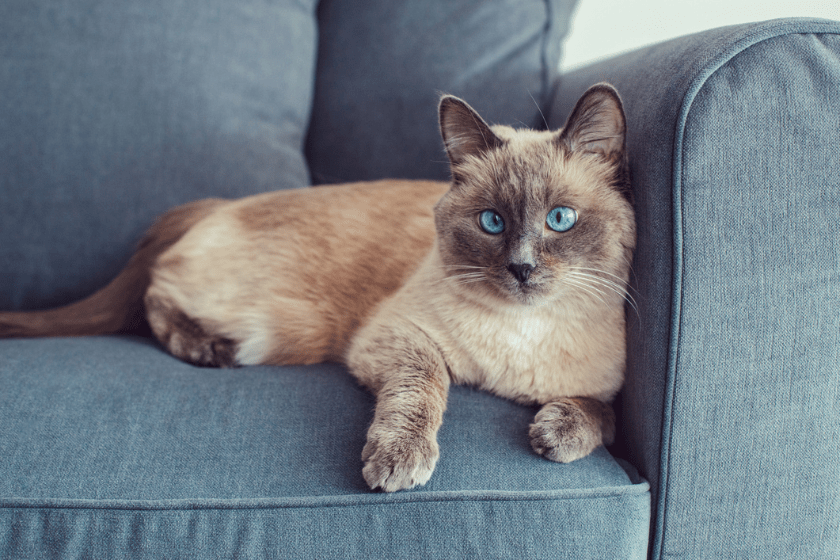
Intelligent and people-loving, the colorpoint shorthair is a bit smaller at 6 to 12 pounds. Plus, they require little grooming, which could be good news for allergy sufferers.
Selkirk Rex
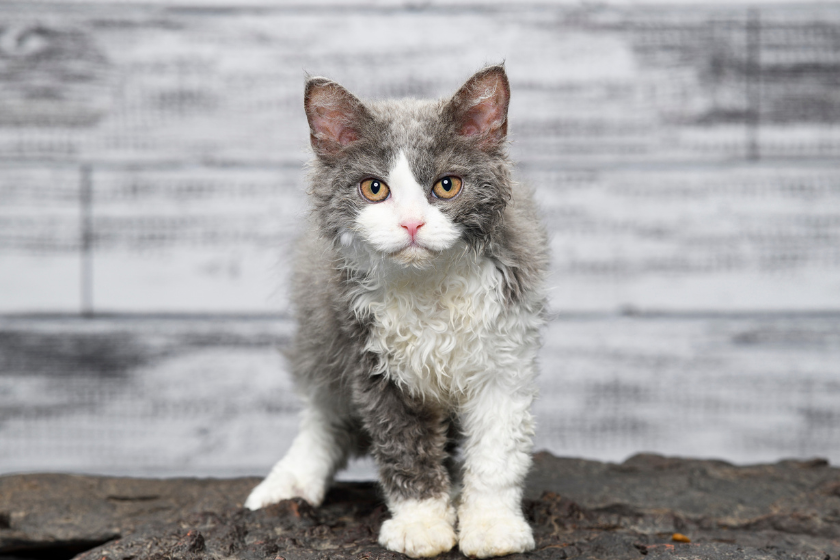
Shedding less than other cats, Selkirk Rex cats are typically sized around 6 to 16 pounds. Cool, calm, and collected, they're sure to be chill members of your family.
Laperm
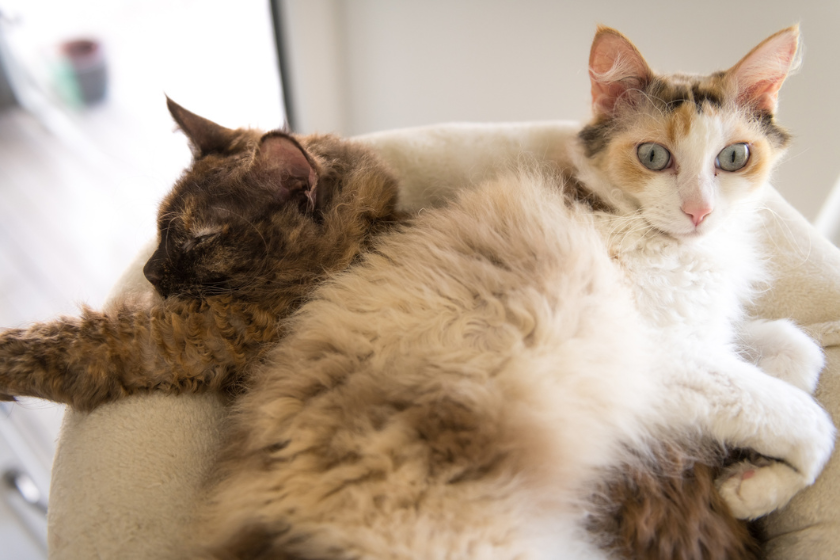
At 8 to 10 pounds, Laperm cats have cute, curly hair that tends to shed less when compared to other felines. They're very peaceful and affectionate, too.
Javanese
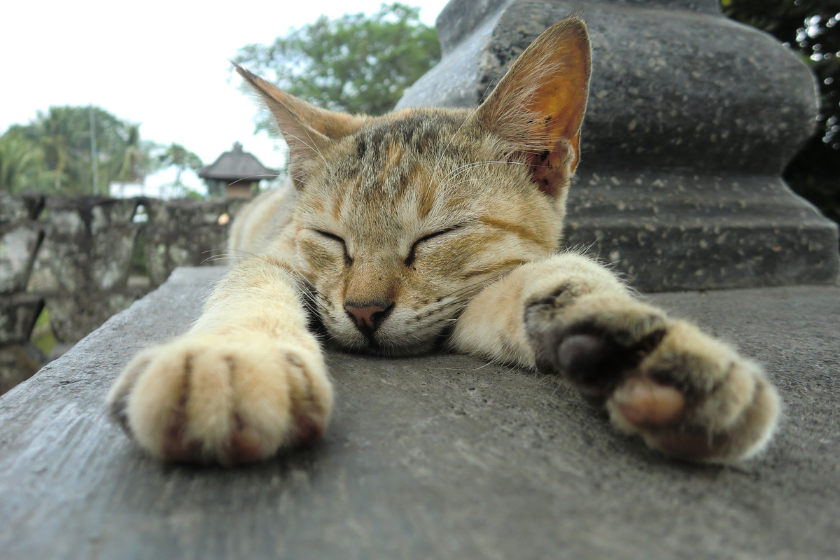
Javanese cats are whip-smart and active, so get ready for a fun playmate for your family! Between 8 to 12 pounds, they're also said to shed less and produce less dander than other kitties.
Korat
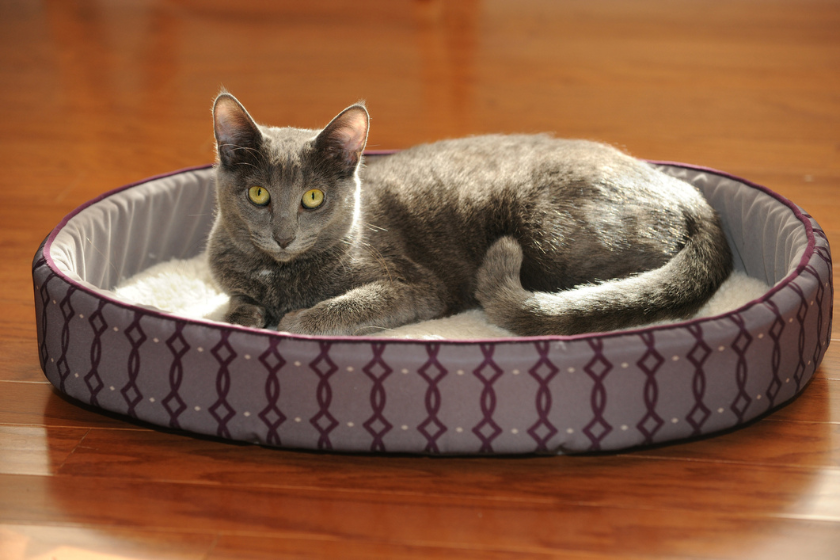
As low-shedding cats, Korats usually come in at about 6 to 10 pounds. Smart and affectionate, this cat just might stick to you like glue.
Do you have a hypoallergenic cat? Tell us on the Wide Open Pets Facebook page!
